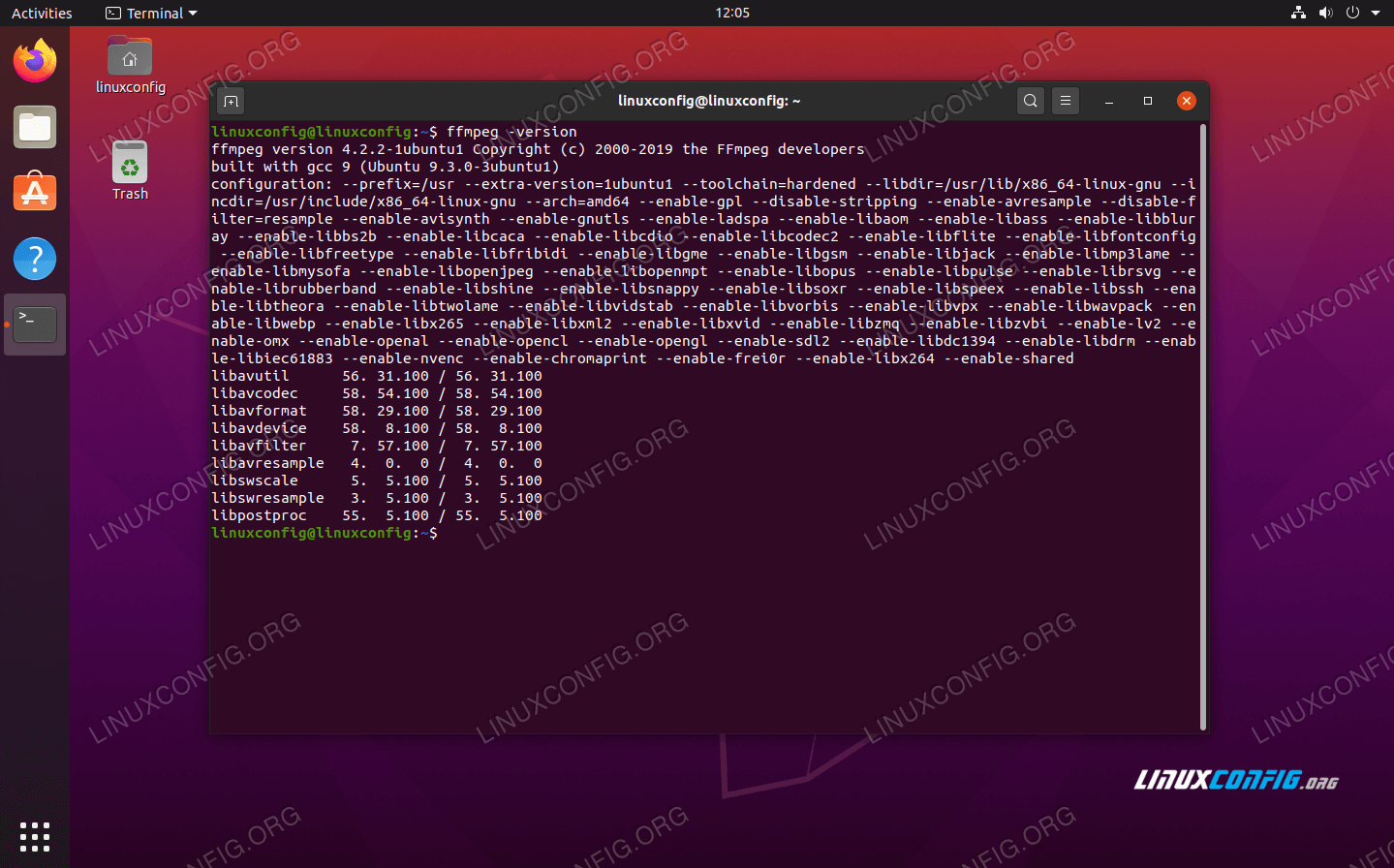
First make sure you have the necessary development packages installed: $ su - # dnf groupinstall "Development Tools"īe sure to also install Git so we’ll have something to grab the source code with: $ sudo dnf install git You can retrieve the ffmpeg source code from Git and compile it yourself. $ – requires given linux commands to be executed as a regular non-privileged user # – requires given linux commands to be executed with root privileges either directly as a root user or by use of sudo command Privileged access to your Linux system as root or via the sudo command. Requirements, Conventions or Software Version Used Software Requirements and Conventions Used Software Requirements and Linux Command Line Conventions Category
How to compile the ffmpeg source code from scrach. From there you can fine-tune its options using attributes and even learn how to create BASH scripts to make automatic conversion scripts. There are many GUI interfaces for the ffmpeg package but in this article we’ll learn how to install it in RHEL 8 / CentOS 8 using the command line and compiling tools.įFMpeg has many command line options when it comes to converting files and therefore it is advisable to use it from the CLI. All you have to do is tell APT to grab and install the program from the default Ubuntu software repo.įire up a terminal, update the APT cache, and install FFmpeg.If you ever need a quick way to convert between video or audio formats in Linux and want something that doesn’t munch on resources but does the job well, then you might want to give ffmpeg a try. This is the default method for installing FFmpeg. However, this method is a bit complex and it is recommended not to follow this method unless you have a specific reason to do so. It is also possible to compile and install FFmpeg from the source. Depending on your needs, you should choose the most appropriate method for you. There are two official ways of installing FFmpeg on Ubuntu: from the Ubuntu repo (v7.x) and from the snap (v4.x). 
This guide will show you how to install and use FFmpeg in Ubuntu 20.04. FFmpeg can convert audio and video into different formats, resize and configure sample rates, and much more. This program supports a wide range of audio and video libraries, including libavformat, libavutil, libavcodec, etc. It is an open-source CLI tool that is available for all the major platforms. FFmpeg is a powerful tool used for transcoding multimedia files.





 0 kommentar(er)
0 kommentar(er)
